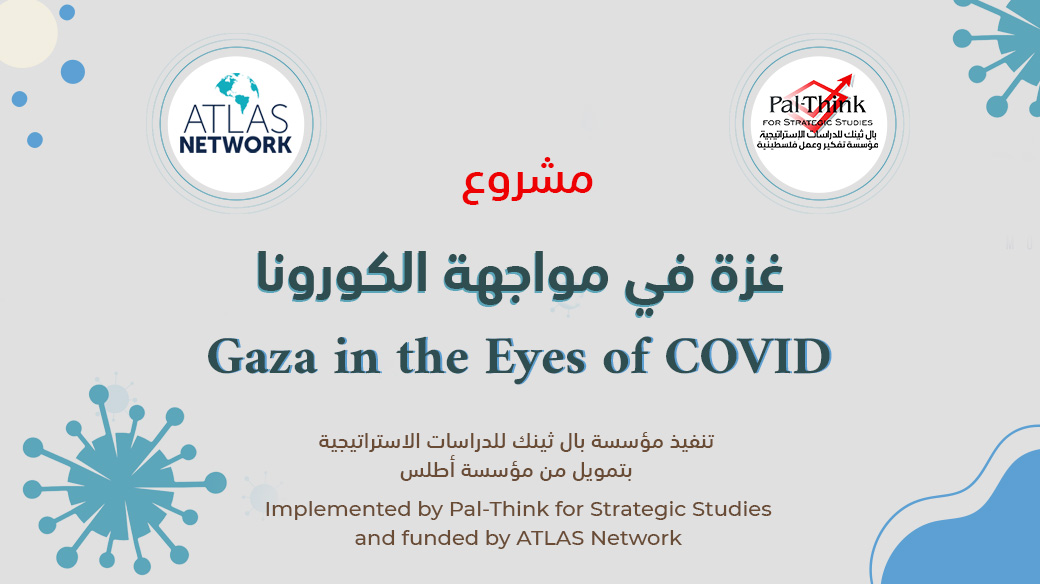On Oct 26th, the fifth episode of the Gaza in the eyes of COVID radio program was live on Alwan radio. This program is implemented by Pal-Think for Strategic Studies and funded by the ATLAS Network. The episode discussed the impact of the corona pandemic on the services provided by the Legal Assistance Unit in the Palestinian Bar Association in Gaza. This unit is responsible for the providing of free legal consulting and judicial representation for marginalized groups in addition to gender cases in the Gaza Strip.
Mr Salem, a lawyer and coordinator of the legal assistance unit at the Palestinian Bar Association, spoke about the impact of the lockdown due to the Coronavirus on the level of services provided to marginalized groups during the past March. He also added that the Palestinian Bar developed a plan to deal with the state of emergency and lockdown, especially during the COVID outbreak in society last August.
He stressed that the outbreak of COVID in the society forced the Bar to close all its branches for 3 weeks and to work face to face only in emergency cases while taking preventive procedures. After that, he emphasized that the Bar is working now both face to face by following strict procedures, and online through phone calls and social media platforms.
Mr Salem stated that the legal assistance unit continued to receive cases from battered women, in accordance with the controls imposed by the circumstances of the pandemic, directly or transferred from partner institutions while taking appropriate and legal consultation in order to reduce the violence rates in the society. He also indicated that the policemen were preoccupied with carrying out the state of emergency regarding the epidemic which helped the perpetrators to use violence against women without fear from judgment.
Then Mr Salem pointed out that the suspension of the courts for one and a half month, the accumulation of cases and the limitation of judgment to old cases and urgent requests represented a challenge to gender cases. He further noted that the phenomenon of domestic violence increased during the Corona pandemic due to the deteriorating economic conditions and the long period of home quarantine.
Mr Salem expected that the COVID-19 might badly affect the economic situation by layoff workers, especially women, due to the dominating male perspective. Then he said that it is possible to close down small and medium enterprises in which women work, thus increasing the unemployment rate among women.
Then Ms Hala Nabhan, a working lawyer at the Women’s Affairs centre, WAC, spoke about the status of courts on the side of violence cases and confirmed what Mr Salem had said about closing the courts. Thus, the WAC was not able to file new cases or even demand the implementation of the judgments issued since the policemen were preoccupied with implementing the state of emergency.
After that, Ms Nabhan pointed out that courts are working fully now, by taking strict preventive procedures, in many cases such as dowry, custody and family maintenance. But still, they do not work with divorce cases. She stressed that, due to COVID-19, there are closed courts such as Shikh Radwan court since Shikh Radwan neighbourhood is announced as a red.
She concluded by talking about the efforts of women’s and human rights organizations that continued to provide their services even during the outbreak of the virus. She further pointed out that these organizations provided a hotline to provide the necessary legal and social needed support in addition to carrying out many awareness workshops through meetings and online sessions. Ms Nabhan emphasized on sessions’ recommendations that have to be delivered to the decision-makers and authorities to provide better legal and social support to marginalized groups.

